Date: October 03, 2025 Update: October 03, 2025
Defence Turkey: Upon your appointment as Chief of the Naval Staff (CNS) in October 2023, could you elaborate on the principal objectives you envisioned for the Pakistan Navy at the outset of your tenure? In respect, to what extent have these objectives been realized, and which key priorities or initiatives remain ongoing or yet to be pursued to fully achieve your strategic vision?
PN CNS Adm. Naveed ASHRAF: The geopolitical environment in our region is changing rapidly, especially due to ongoing regional conflicts. After assuming Command, I had envisioned a robust, adaptive and technologically advanced Navy with well-trained HR capable of maintaining perpetual readiness against conventional and unconventional threats, in order to successfully navigate challenges in the maritime domain. Therefore, since assuming Command as Chief of the Naval Staff, one of the foremost objectives was to boost combat readiness through optimal utilization of resources and completion of ongoing projects in order to augment the Pakistan Navy's prowess.
By the grace of Almighty Allah, with the induction of modern platforms and the development of quality HR, the Pakistan Navy is well prepared to counter both conventional and unconventional threats being posed to us. In short, while a lot has been achieved, our strategic journey continues towards shaping Pakistan Navy into a modern, agile force, fully prepared for future challenges and committed to safeguarding Pakistan's maritime interests while contributing to regional stability.
Defence Turkey: In today’s complex and evolving security environment, how is the Pakistan Navy adapting its doctrine, structure, and equipment to meet emerging challenges? Are there any organizational reforms underway?
PN CNS Adm. Naveed ASHRAF: The contemporary maritime environment is marked by hybrid threats, rapid technological shifts and intense competition in the Indian Ocean Region (IOR). To remain ahead of these challenges, the Pakistan Navy is continually refining its doctrine, force structure and capabilities. Our doctrine now places greater emphasis on adaptability, information dominance, cyber and electronic warfare and the integration of unmanned and autonomous systems into main fleet operations.
Pakistan Navy has been successful in defending our maritime interests in the recent conflict with India. We will keep working to further strengthen our existing capabilities and align our organizational structure as per modern dictates.
Defence Turkey: Given Pakistan’s geo-strategic position, the Navy has expressed ambitions to develop into a credible blue-water force in the Indian Ocean Region (IOR). How is PN enhancing its capacity to meet present and future challenges in the IOR?
PN CNS Adm. Naveed ASHRAF: Pakistan’s geo-strategic location at the crossroads of the Indian Ocean Region (IOR) naturally places great responsibility on our Navy. To evolve into a credible Blue Water force, the Pakistan Navy is pursuing a balanced approach of modernization, indigenization and regional cooperation.
We are inducting modern surface and subsurface platforms, augmenting naval aviation and special operations forces and investing in Maritime Domain Awareness to ensure credible deterrence across the IOR. At the same time, emphasis on indigenous shipbuilding and technological advancements is enabling long-term self-reliance. Equally important is that Pakistan Navy remains an active contributor to collective maritime security through initiatives like Regional Maritime Security Patrols (RMSPs) and participation in multinational exercises. This combination of capability enhancement and cooperative engagement is central to our vision of maintaining a robust and credible posture in the region.
%20Admiral%20Naveed%20ASHRAF%20Interview%20(12).jpg)
Defence Turkey: Pakistan has procured a total of four Type 054A/P Class Multi-Role Frigates (classified as Tughril Class) from China. With the induction of the Type 054A/P Tughril Class Frigates, what specific new capabilities have been added to the Pakistan Navy’s surface combat fleet, particularly in terms of anti-surface, anti-air, and sub-surface operations?
PN CNS Adm. Naveed ASHRAF: The induction of the Type 054 A/P Frigates marks a major milestone in Pakistan Navy’s modernization and has significantly enhanced our surface combat capabilities. These state-of-the-art warships equipped with advanced sensors, weapon systems and combat management suites provide a marked edge in anti-surface, anti-air and anti-submarine domains. The Frigates are capable of ensuring credible deterrence with an ability to detect and neutralize air, surface and underwater threats at extended ranges.
Collectively, these frigates serve as highly versatile, multi-role platforms that not only strengthen Pakistan Navy’s combat potential but also expand our capacity to contribute effectively to regional maritime security and cooperative engagements.
%20Admiral%20Naveed%20ASHRAF%20Interview%20(8).jpg)
Defence Turkey: How has the Pakistan Navy approached the integration of these state-of-the-art multi-role frigates into existing fleet operations, and what training or operational adjustments have been carried out to maximize their effectiveness?
PN CNS Adm. Naveed ASHRAF: The integration of the Type 054 A/P Frigates into the Pakistan Navy’s fleet has been undertaken by adopting a phased approach, ensuring seamless alignment with our existing operational structure. These ships have already been deployed in various national and multinational exercises, allowing crews to validate tactics, refine procedures and build interoperability with other PN platforms and partner navies.
To maximize their effectiveness, comprehensive training programs were instituted well before induction, including crew training with the shipbuilder, simulator-based modules and advanced operational courses. Adjustments in fleet tactics, command structures and logistics support have also been introduced to fully exploit the enhanced capabilities of these platforms.
This holistic approach ensures that the Type 054 A/P Frigates are not only fully integrated into Pakistan Navy’s order of battle but are also delivering their intended impact as frontline assets in safeguarding our maritime interests.
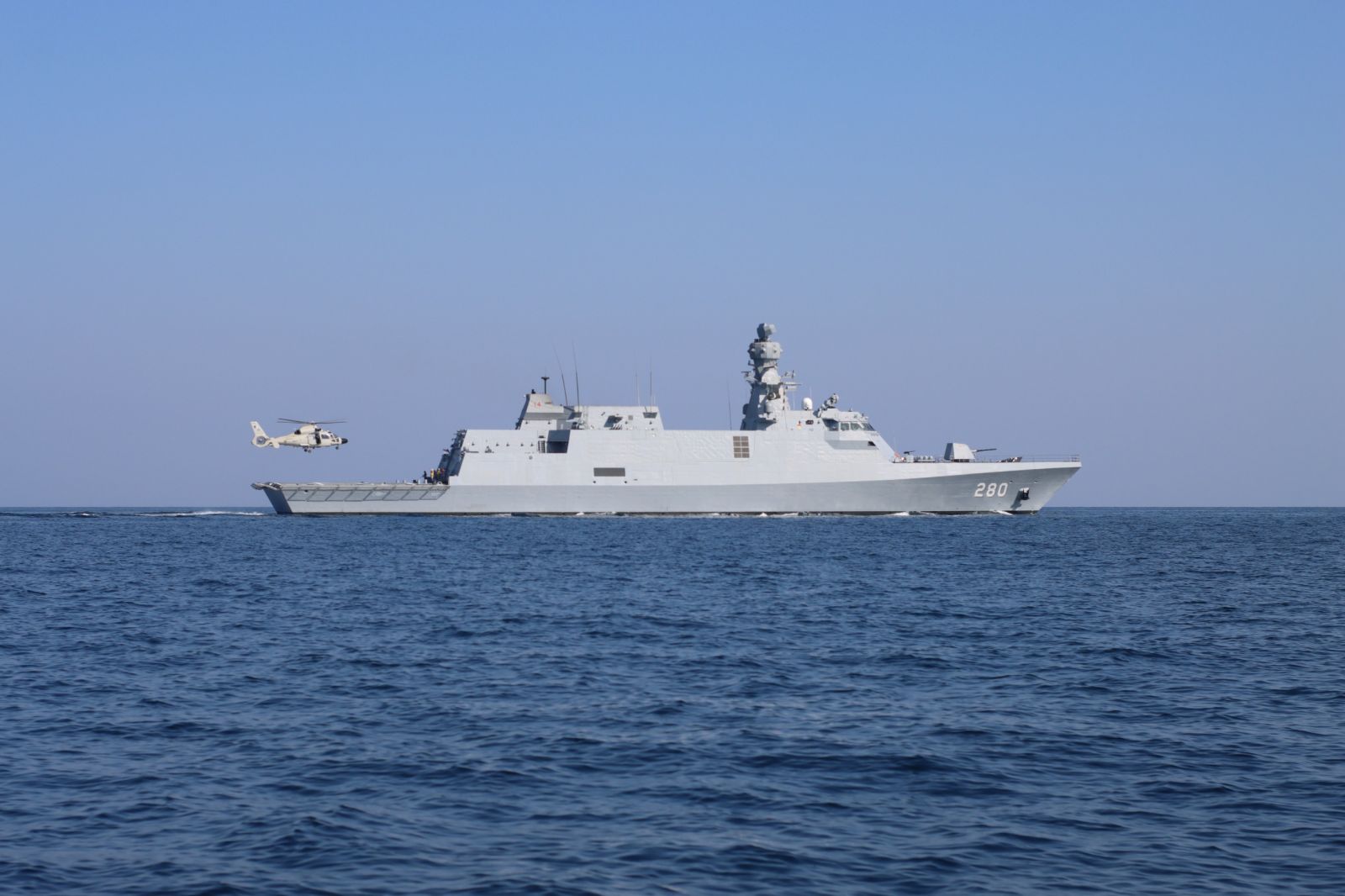
Defence Turkey: Constructed at the İstanbul Naval Shipyard Command, PNS Babur (F-280) Corvette, was delivered to the Pakistan Navy with a ceremony held at the İstanbul Naval Shipyard Command on September 23, 2023. On May 28, 2024, PNS Babur embarked on its maiden voyage from the İstanbul Naval Shipyard, heading toward Karachi, Pakistan. This milestone journey, which was completed on June 26, 2024, symbolizes not only the operational readiness of the vessel but also the successful transfer of advanced naval technology and expertise under the PN MILGEM Project. Pakistan Navy formally inducted PNS Babur (F-280) Corvette on September 6, 2024, into its fleet on Defense and Martyrs Day. With the commissioning of the first PN MILGEM (BABUR Class) Corvette, how do you assess the capabilities and impact of this class on PN’s operational flexibility?
PN CNS Adm. Naveed ASHRAF: The induction of PNS BABUR marks a major milestone in Pakistan Navy’s modernization journey. As a state-of-the-art multi-role platform, the BABUR Class brings enhanced anti-air, anti-surface and anti-submarine warfare capabilities. Equipped with modern sensors, weapons and combat systems, it significantly boosts our operational capability across a range of maritime missions.
Beyond its tactical advantages, the successful execution of the PN MILGEM project reflects Pakistan’s growing capacity for indigenous shipbuilding and technology transfer. The BABUR-class corvettes will play a central role in strengthening maritime security, force projection and maintaining a balanced fleet posture in the region.
Defence Turkey: Could you provide an update on the Jinnah Class Frigate Project? When is construction expected to begin, and what are the latest design developments?
PN CNS Adm. Naveed ASHRAF: The Jinnah Class Frigate marks a significant advancement for Pakistan Navy as our first indigenously designed frigate. The first frigate is scheduled to be launched soon, with subsequent units planned for delivery at a consistent tempo that aligns with our operational requirements, strategic objectives and availability of resources.
Currently, our industrial base is developing and gearing up for this initiative, and we anticipate that our technological capabilities will grow throughout the program. This growth will be facilitated through partnerships with experienced defense partners (from friendly countries).
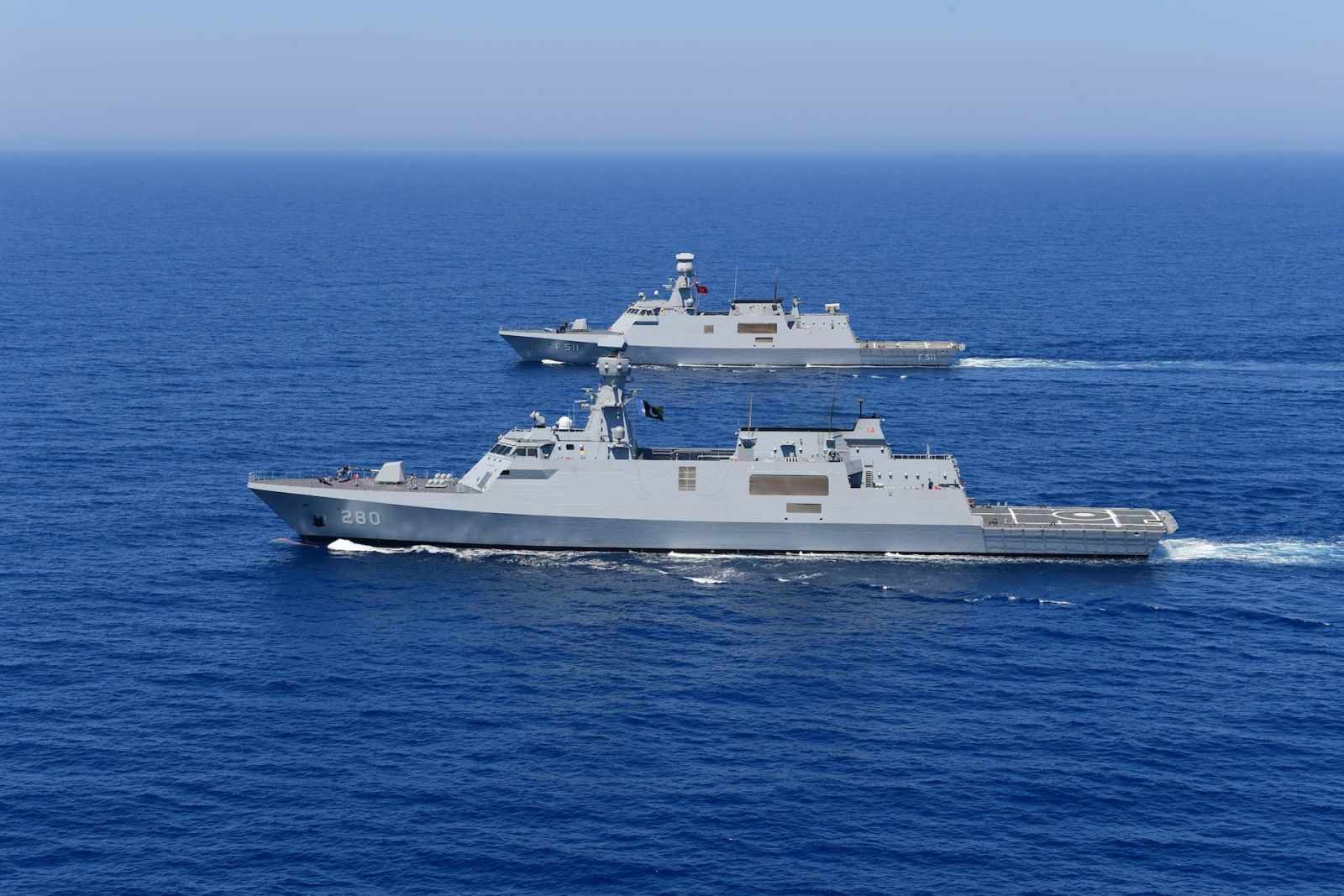
Defence Turkey: How would you assess the current state of naval cooperation between Pakistan and Türkiye within the broader framework of bilateral defense relations?
PN CNS Adm. Naveed ASHRAF: Türkiye is our brotherly nation with shared Islamic heritage and culture. Our strong national bond is also reflected in the naval domain, and cooperation between our navies is continuously expanding. Our partnership extends across joint exercises, technology transfer and collaborative projects like the PN MILGEM Corvette Program. This close cooperation reflects mutual trust and shares strategic interest, significantly enhancing both navies’ operational capabilities while effectively contributing to regional maritime security.
Defence Turkey: What role do you envision for Pakistan and Türkiye in conducting joint naval exercises and increasing operational interoperability between the two navies?
PN CNS Adm. Naveed ASHRAF: Pakistan and Türkiye play a pivotal role in fostering regional maritime security through regular joint naval exercises and enhanced interoperability. Regular conduct of bilateral exercises builds mutual trust, improves tactical coordination and enables seamless execution of combined operations. By deepening collaboration, both navies can respond effectively to shared challenges such as maritime terrorism, piracy and humanitarian assistance, strengthening stability across critical sea lanes.
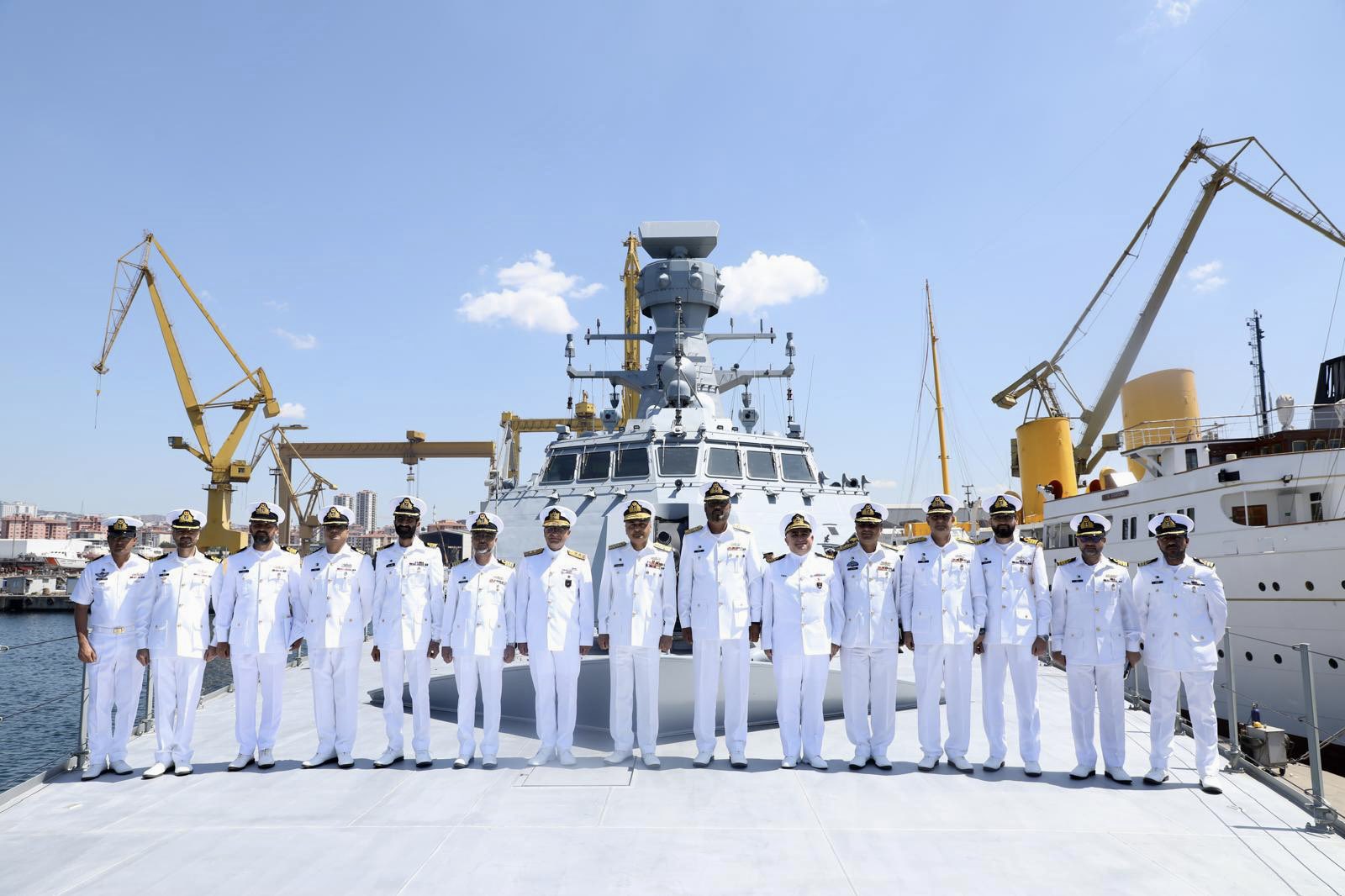
Defence Turkey: How important is the collaboration in training, education, and exchange programs between Turkish and Pakistani naval personnel for strengthening institutional ties?
PN CNS Adm. Naveed ASHRAF: Collaboration in training, education and exchange programs between the Turkish and Pakistani Naval Forces is of immense importance. These initiatives not only enhance professional competencies but also deepen mutual understanding, trust and interoperability. Such engagements are vital for strengthening our institutional ties and advancing our shared maritime security objectives in an increasingly complex naval environment.
Defence Turkey: What roadmap has the Pakistan Navy envisioned for the integration of unmanned surface and underwater vehicles, as well as unmanned aerial systems in naval operations?
PN CNS Adm. Naveed ASHRAF: We’ve made significant strides in developing and inducting autonomous unmanned systems in the Navy and also embedding them with the naval operations. We are currently operating CH-4 UCAV from China, Boeing MQ-27 Scan Eagle from the United States and Rheinmetall Luna NG from Germany. These UAVs are primarily employed for surveillance purposes, significantly enhancing our capabilities in maritime domain awareness. We are also working on developing unmanned surface and underwater vehicles in line with modern trends.
%20Admiral%20Naveed%20ASHRAF%20Interview%20(11).jpg)
Defence Turkey: Through joint exercises with allied and partner nations—such as Türkiye, China, the United States, and Saudi Arabia—which key capabilities does the Pakistan Navy seek to further develop?
PN CNS Adm. Naveed ASHRAF: Joint exercises with allied and partner navies provide opportunities to test and refine own operational concepts, enhance interoperability and learn from the experiences of each other. In AMAN 2025, for example, Pakistan Navy collaborated with partner nations to conduct complex multi-domain operations, enhancing coordination across surface, sub-surface and aerial platforms.
By leveraging platforms like AMAN, Pakistan Navy continues to enhance operational readiness, doctrinal sophistication and its capacity to conduct coordinated operations-thereby reinforcing both national defense and regional maritime security.
Defence Turkey: The Pakistan Ministry of Maritime Affairs, in collaboration with Pakistan Navy, is organizing the 2nd edition of the Pakistan International Maritime Expo & Conference (PIMEC) in Karachi from November 3-6, 2025. The event will showcase Pakistan’s maritime potential, promote global partnerships, and provide a platform for both government-to-government (G2G) and business-to-business (B2B) engagements. How does the Pakistan Navy envision the role of the PIMEC in advancing Pakistan’s maritime industry and strengthening its blue economy initiatives?
PN CNS Adm. Naveed ASHRAF: PIMEC 2025 represents Pakistan’s commitment to promoting maritime awareness and unlocking the vast potential of our Blue Economy. For Pakistan, it is an opportunity to project our maritime potential and reinforce our vision of a secure, prosperous and inclusive maritime future.
Pakistan International Maritime Expo & Conference (PIMEC) serves as a pivotal platform to highlight Pakistan’s maritime and advance our Blue Economy initiatives. By bringing together government agencies, industry leaders and academic institutions, PIMEC enables the exploration of opportunities in shipbuilding, port development, maritime logistics and resource management, thereby supporting economic growth and strategic maritime objectives.
Through government-to-government (G2G) and business-to-business (B2B) engagements, PIMEC aims to strengthen international cooperation, attract investment in Pakistan’s maritime sector and underscore Pakistan Navy’s commitment to sustainable development, maritime security and the growth of the Blue Economy.
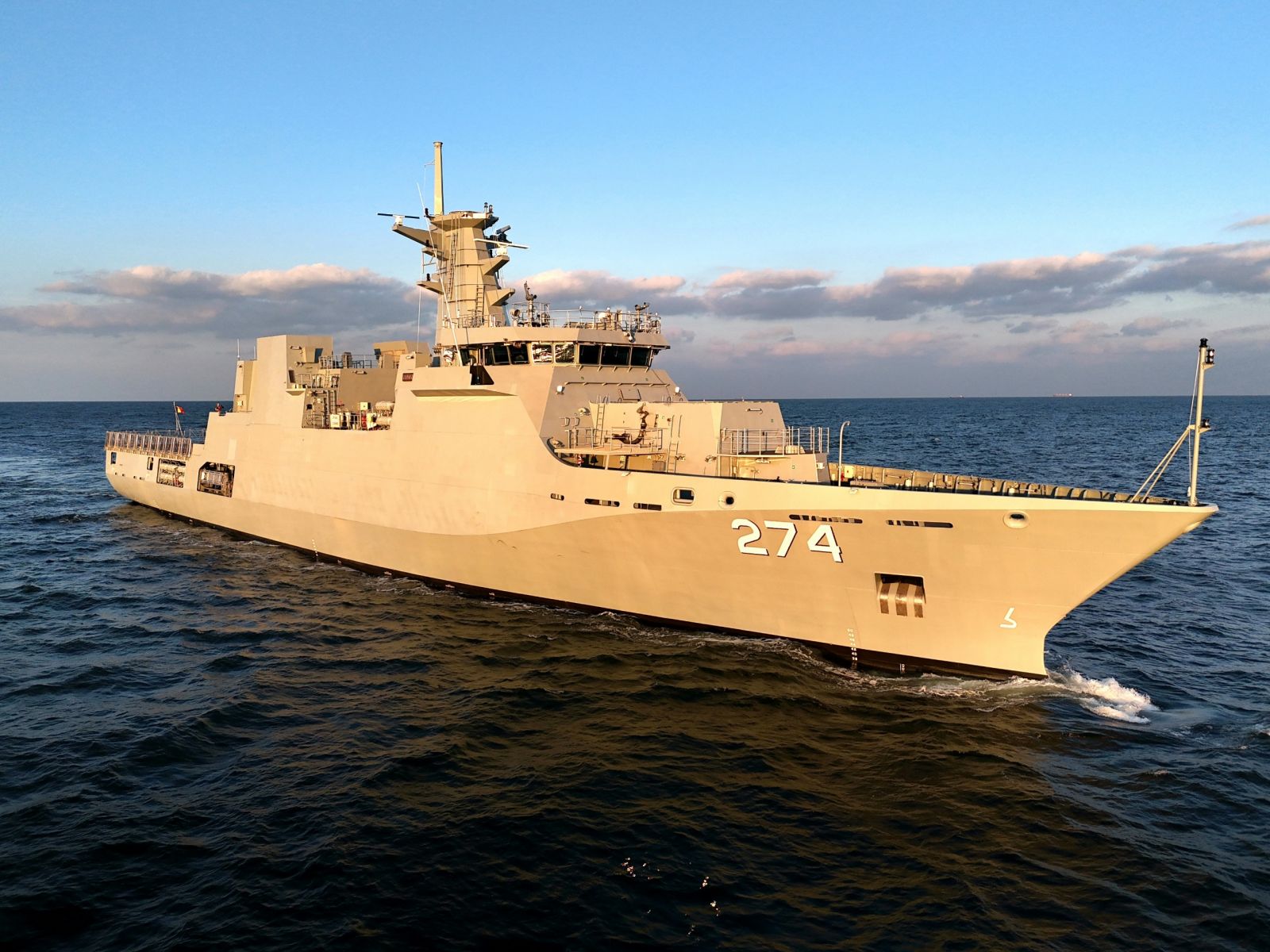
Defence Turkey: In what ways does PIMEC serve as a platform for fostering international collaboration between governments, navies, academia, and the maritime private sector?
PN CNS Adm. Naveed ASHRAF: The Pakistan International Maritime Expo & Conference (PIMEC) serves as a vital platform to showcase Pakistan’s maritime potential, advance technological innovation and strengthen our Blue Economy initiatives. By bringing together government agencies, industry stakeholders and academic institutions, PIMEC helps highlight opportunities in shipbuilding, port development, maritime security and coastal resource management, thereby supporting Pakistan’s long-term economic and strategic goals.
For the Pakistan Navy, PIMEC is more than an exhibition. It is a forum to promote collaboration, knowledge exchange and partnerships with international navies, maritime industries and research institutions. The event allows us to share expertise, explore joint ventures and foster professional linkages that enhance operational readiness and indigenous capacity-building.
Defence Turkey: What steps is the Pakistan Navy taking to support the development of the Blue Economy?
PN CNS Adm. Naveed ASHRAF: Our government has rightly realized the importance of the blue economy for sustainable development, and various initiatives are underway to optimally exploit the potential in this domain. As far as the Pakistan Navy is concerned, the Navy is an enabler in this process of maritime economic development. We have been instrumental in supporting marine scientific research, protecting offshore resources and facilitating port and shipping security. Through platforms like PIMEC and collaborations with national and international stakeholders, we are pushing for integrated maritime governance, investment in coastal infrastructure and marine environmental protection. We believe the Blue Economy holds transformative potential for Pakistan’s economic future.
Defence Turkey: Maritime Security threats are evolving. How is the Pakistan Navy adapting to meet new challenges?
PN CNS Adm. Naveed ASHRAF: The nature of maritime threats has indeed expanded from piracy and arms smuggling to cyber warfare and hybrid challenges. To address this, we are investing in modern platforms, surveillance capabilities and indigenous solutions. At the same time, we are enhancing jointness with other services and interoperability with friendly navies. Our focus remains on credible deterrence, swift response and operational readiness across the full spectrum of maritime challenges.
%20Admiral%20Naveed%20ASHRAF%20Interview%20(9).jpg)
Defence Turkey: Pakistan has hosted the AMAN Exercise in February this year, and now PIMEC. What is the message you want to give to the international maritime community?
PN CNS Adm. Naveed ASHRAF: Our message is clear, Pakistan is committed to promoting maritime peace, cooperation and shared prosperity. Whether through exercises like AMAN or events like PIMEC, we aim to build bridges, foster dialogue and generate trust among nations. The sea connects us all, and only through collective effort can we secure our oceans for future generations.
Defence Turkey: Lastly, what do you envision for the future of Pakistan’s maritime sector?
PN CNS Adm. Naveed ASHRAF: I envision a robust, secure and innovation-driven maritime sector that contributes significantly to national growth and regional integration. With proper policy alignment, stakeholder collaboration and investment in maritime human capital, Pakistan can emerge as a regional maritime hub. The Pakistan Navy will continue to play its role, both as guardian of maritime interests and as a catalyst for national maritime development.
Defence Turkey: Could you elaborate on the opportunities PIMEC provides for foreign companies and investors seeking to engage with Pakistan’s growing maritime and defense industry?
PN CNS Adm. Naveed ASHRAF: PIMEC offers an excellent platform for foreign companies and investors to connect with Pakistan's expanding maritime and defense sectors. It facilitates networking, technology exchange and partnerships across multiple domains in maritime sectors such as port operations, maritime logistics, sea transportation, ship building and repair, ship breaking, etc. PIMEC showcases Pakistan's commitment to industrial growth and provides opportunities to collaborate on joint ventures, co-production and innovation, making it an attractive gateway for global stakeholders.
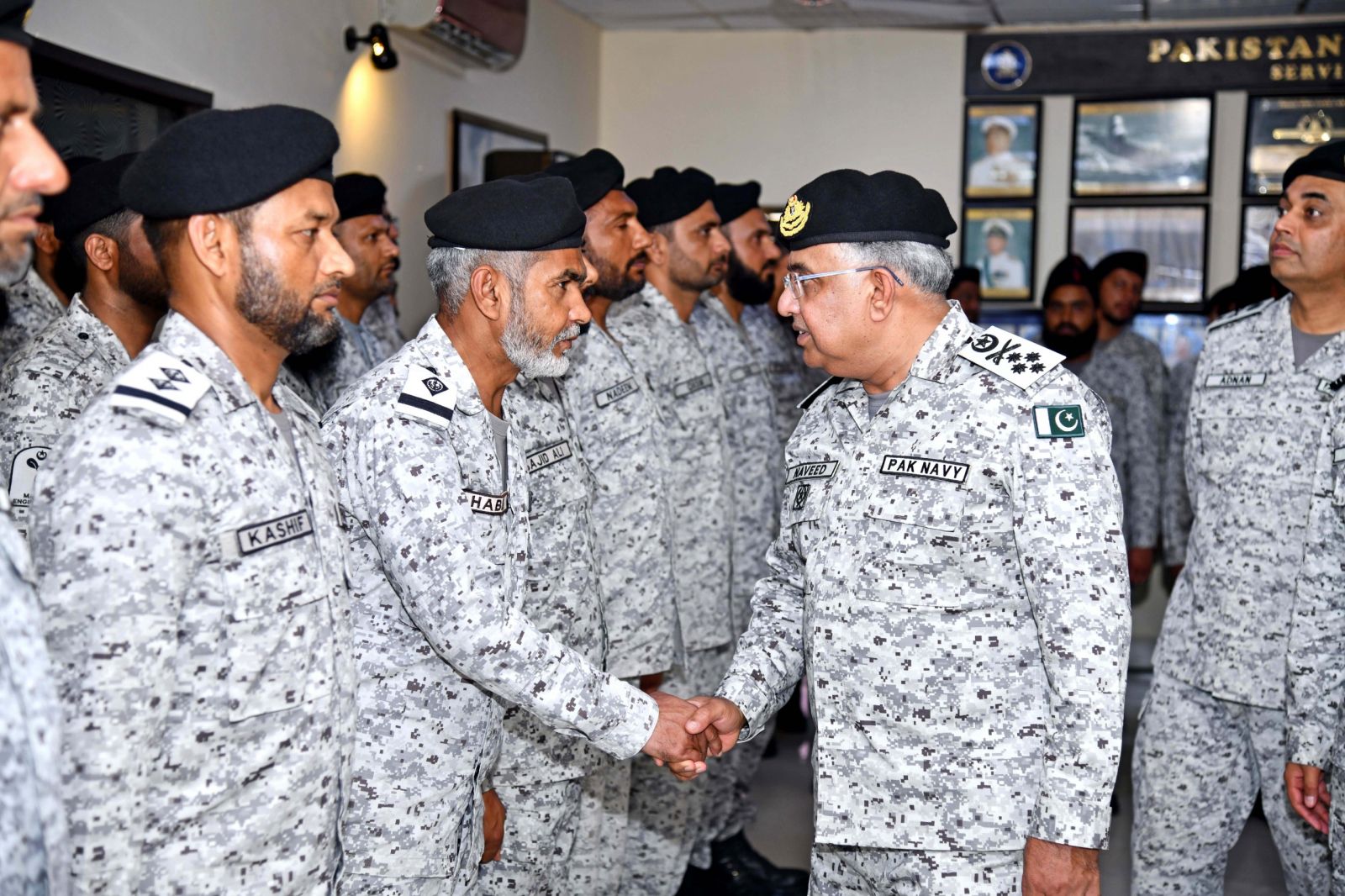
Defence Turkey: How does PIMEC complement Pakistan’s broader maritime strategy, particularly in relation to Gwadar Port, CPEC, and the expansion of Pakistan’s continental shelf?
PN CNS Adm. Naveed ASHRAF: PIMEC is a platform that showcases and leverages the country's strategic maritime assets, including Gwadar Port and the opportunities presented by the China-Pakistan Economic Corridor (CPEC). By highlighting port development, shipping and logistics capabilities, the event underscores Pakistan's role as a growing maritime hub in the region and promotes investment in critical infrastructure to support trade and economic growth.
The Expo is combined with the International Maritime Conference (IMC), which aims to bring government agencies, industry stakeholders and international partners on a single platform for knowledge exchange and discussions on maritime challenges. In essence, PIMEC acts as a bridge between policy makers, local and international maritime industries and business partners, reinforcing Pakistan Navy’s role not only in safeguarding maritime security but also in driving strategic economic and developmental objectives within the Blue Economy framework.
Defence Turkey: Looking ahead, what are the Pakistan Navy’s long-term goals for PIMEC, and how do you see the Expo evolving in the coming years to address emerging maritime technologies, sustainability, and security challenges?
PN CNS Adm. Naveed ASHRAF: Pakistan Navy envisions PIMEX evolving into a premier regional platform that promotes the blue economy, fosters innovation, collaboration, and strategic dialogue to harness the blue economy potential of Pakistan. Long-term goals include promotion of the blue economy, public-private partnerships, promoting indigenous technological advancements and addressing emerging maritime threats through international cooperation.
Defence Turkey: Finally, Admiral ASHRAF, would you like to share a closing message with our readers?
PN CNS Adm. Naveed ASHRAF: I would like to extend my appreciation to the readers of Defence Türkiye for their interest in Pakistan Navy and our ongoing efforts to safeguard the nation’s maritime interests. Pakistan Navy remains steadfast in its commitment to operational excellence, modernization and the development of a highly skilled and motivated workforce.
As we look to the future, our focus remains on enhancing our capabilities, strengthening regional and international partnerships and contributing to a secure, stable and prosperous maritime environment. Initiatives such as PIMEC and multinational exercises like AMAN reflect our dedication to these goals.
I am confident that through collaboration, innovation and a clear strategic vision, Pakistan Navy will continue to play a pivotal role in defending our nation, supporting the Blue Economy and promoting peace and stability in the Indian Ocean Region.